 Understanding London’s Hard Water and Limescale Protection
Understanding London’s Hard Water and Limescale Protection
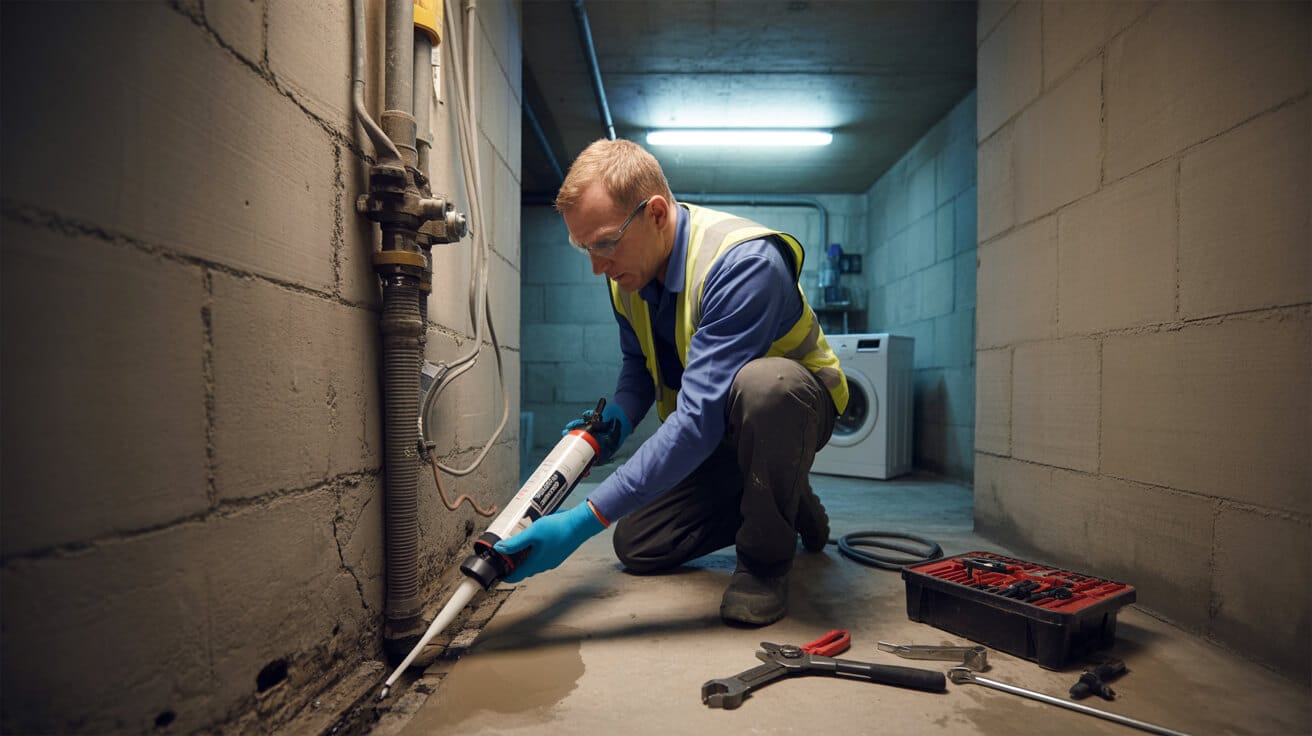
What’s Really in London’s Hard Water—and Why Is Every Property Owner at Risk?
London’s water isn’t just “tap water”—it’s a multibillion-pound flow of minerals running through every street, flat and commercial building. Every time rain lands over Kent or the Thames Valley, it seeps through chalk and limestone, dissolving calcium and magnesium and bringing that mineral load straight to your doorstep (Thames Water). These minerals are what makes London’s water “very hard”—with average hardness over 290 mg/L, far surpassing much of the UK.
Why care about what’s in your water? Because behind every mug ring, kettle descale, or sluggish shower is a trail of unseen consequences:
Hard water steadily fills your entire property with silent problems.
- Scale in your boiler means lost energy and higher bills—year after year:
- Every tap, valve and pipe faces premature wear:
- Legal risk creeps in for landlords, agents, and facilities managers, thanks to lapsed water safety standards:
You’re not just dealing with harmless minerals. You’re managing ongoing system stress, unpredictable costs, and the reputational headache of failed callouts or unhappy tenants. If you’re responsible for a property—your own, a rental, a block, a shop—London’s “invisible” minerals are your daily business risk.
Every drop of London’s water silently deposits a legacy inside your pipes and appliances—long before you spot the first sign.
Looking after your asset starts with seeing that risk for what it is: a steady, multiplying pressure on everything you own or manage. What you can’t see is usually what costs you most.
How Does London’s Hard Water Actually Create Limescale—and Why Should You Take It Seriously?
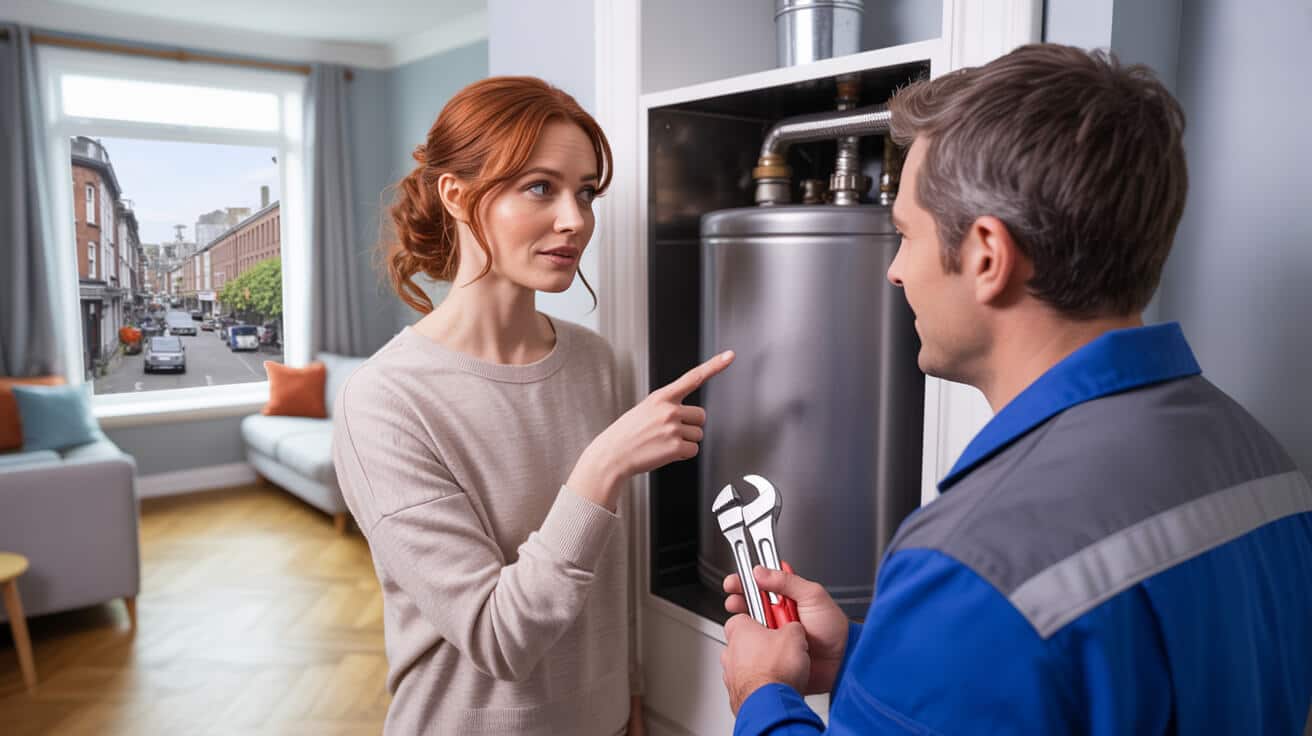
If you’ve ever scrubbed a kettle or wondered why your hot water never feels “quite right,” you’ve already met the enemy: limescale. But it’s not just annoying—it’s a silent system killer building up everywhere water flows and heats.
What exactly is happening?
- As water heats (in a kettle, boiler, cylinder, even a washing machine), dissolved calcium and magnesium solidify as limescale.
- Each degree your boiler raises the water temp, you accelerate the process.:
- Inside radiators, pipes, and appliances, this crust creeps in week after week, invisibly thickening. Eventually, 1mm of limescale can drop your heating efficiency by as much as 12% ([Halcyan Water](https://halcyanwater.com/category/hard-water-limescale/)).
But the cost is more than money. Limescale creates rough surfaces ideal for bacteria—including dangerous strains like Legionella (especially where water sits in non-circulating cylinders or long pipe runs). Even a single missed service or too-low hot water setting can mean you’ve breached compliance obligations (WRAS Guide).
Hard water’s effects stretch further:
- Worsens eczema, skin dryness, and irritation:
- Leaves glassware cloudy, towels harsh, and appliances gasping for life
- Fails landlords and agents when inspectors spot poor flow, tepid water, or risky tanks during routine visits
What you ignore this year becomes next year’s breakdown, failed inspection, or tenant complaint.
No property escapes London’s hard water. Get ahead of it, or pay for it—either way, limescale wins if you don’t take charge.
Why Does Limescale and Hard Water Cost London Owners and Managers So Much?
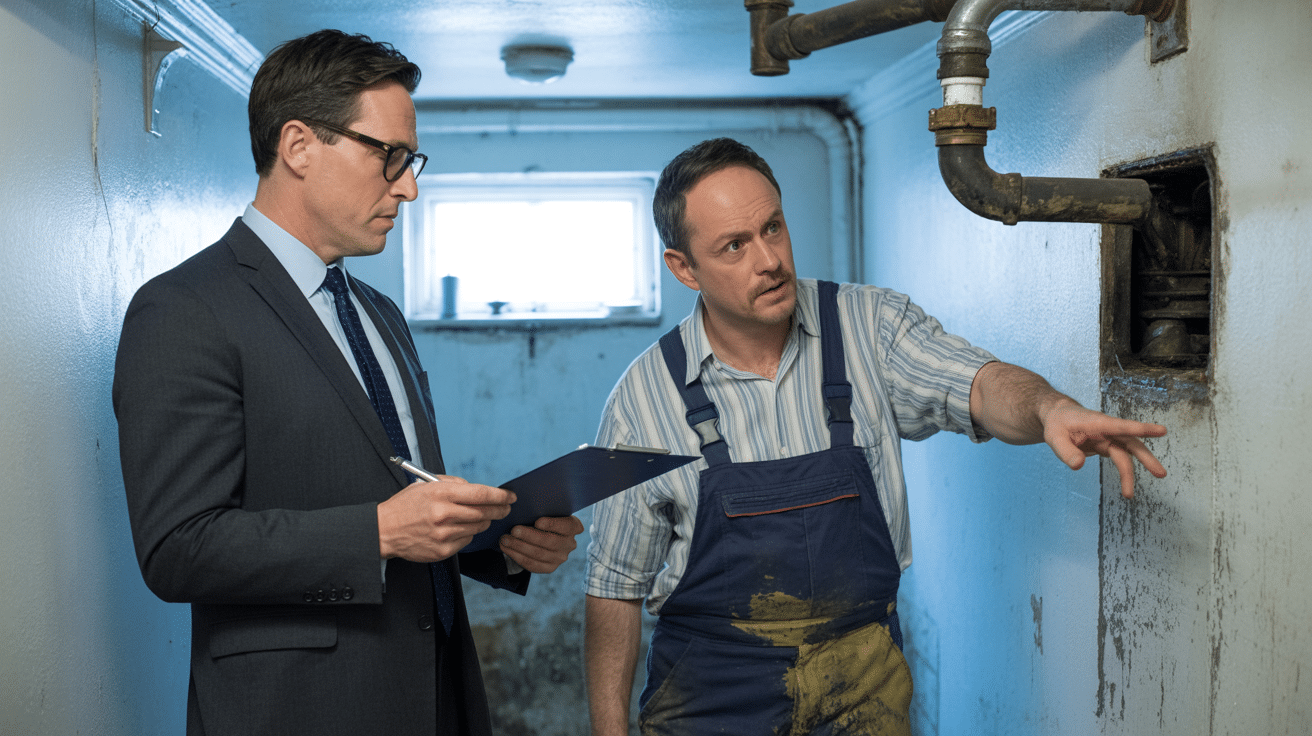
You won’t often see a line-item saying “limescale penalty” on a bill. The real cost is silent—hidden in higher bills, failed parts, frustrated tenants or staff, and legal forms stacking up on your email.
Here’s how silent water becomes loud expense:
- Early appliance failure: Boilers and cylinders choke first—not “because of age,” but because scale blocks heat transfer, making systems overwork and parts break down. Most manufacturers reject warranty claims if the real cause is untreated hard water ([Anderson & Sons](https://www.andersonandsons.co.uk/londons-hard-water-explained-how-to-safeguard-your-plumbing-system)).
- Escalating energy bills: That “routine” crust multiplies your energy costs—12%+ with every extra millimetre ([Halcyan Water](https://halcyanwater.com/category/hard-water-limescale/)). That’s annual, not one-off.
- Emergency callouts: Every limescale-related repair easily starts at £100–£150, plus parts, lost rent, or business downtime ([Dynapipe](https://www.dynapipe.co.uk/how-to-prevent-limescale.htm)).
- Compliance failures: Water stagnation and raised bacterial risk breach regulations—suddenly you’re fielding questions from surveyors or insurers, not just tenants.
- Time you don’t get back: Chasing quotes, rebooking failed “quick fixes,” and explaining delays to customers or tenants erodes more than your reputation.
Most costs from limescale never get labelled as ‘limescale’ on your invoice—they’re buried in wasted energy, appliance swaps, and compliance paperwork.
The bitter pill? Limescale only respects those who act proactively—waiting guarantees you’ll pay the max, both financially and in stress.
Is It Possible to Detect Hard Water and Limescale Risk Before It Costs You?
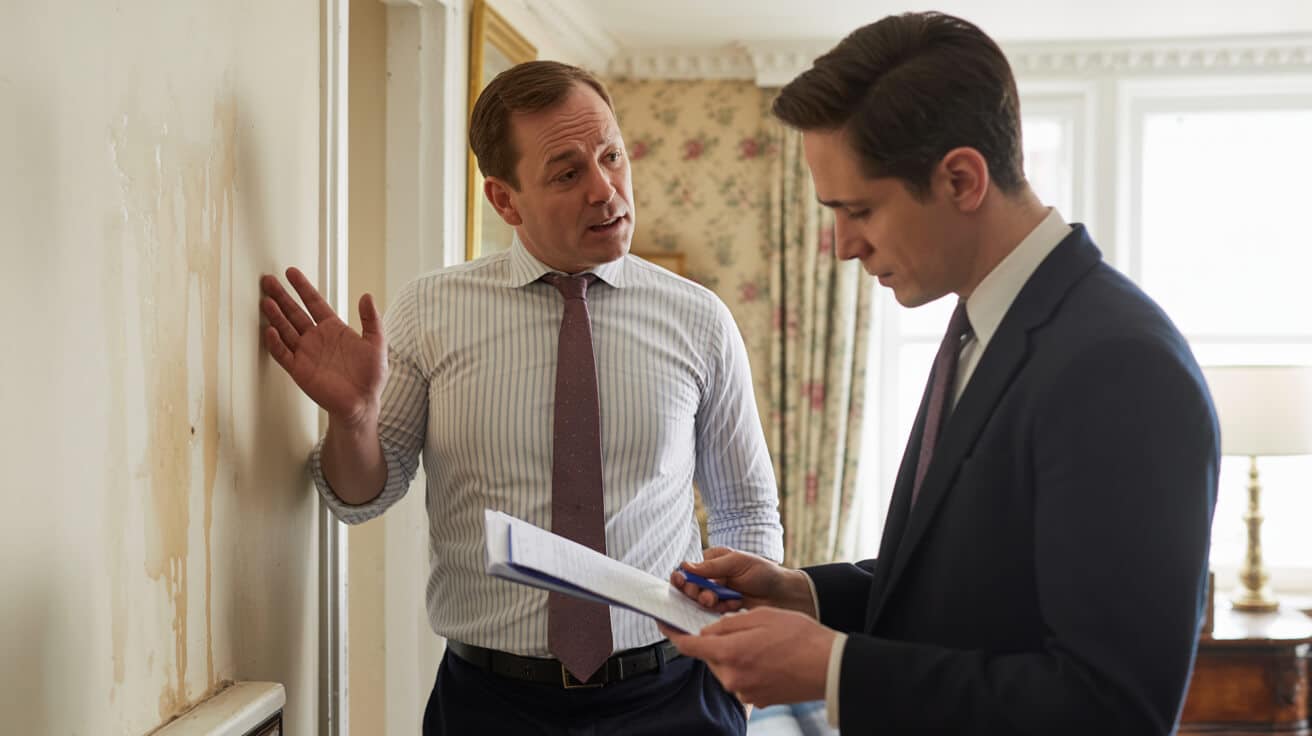
You don’t need a lab coat to see trouble coming. Any property owner, landlord, or manager can check for risk signs—no gadgets required.
Spot these early warning flags:
- Soap performance test: A simple bottle of London tap water mixed with washing-up liquid that produces dull suds is telling you: “high mineral territory” ([Water-Right](https://www.water-right.com/homeowner-resources/diy-test-hard-water/)).
- Look for crusting: White, flaky rings on taps, shower heads, or kettles signal active limescale build-up.
- Test kits: £10 or less in most hardware shops—these strips give a reliable “hardness” reading in minutes. No confusion.
- Online water hardness maps: Thames Water’s online checker removes all doubt—London is “very hard” everywhere ([Thames Water](https://www.thameswater.co.uk/help/water-quality/water-hardness)).
- Professional plumber’s test: For blocks of flats, rental portfolios, or commercial spaces, a WRAS-approved survey is best practice—this isn’t just for fancy buildings, it’s what gets you through insurance and legal checks.
Limescale only stays silent until the repair bill, energy spike, or inspector puts it in writing.
Proactive checking gives you choices and proof. Waiting for symptoms is a losing bet in any London postcode.
Which Limescale Protection Methods Are Proven for London Properties—And Which Are Overhyped?
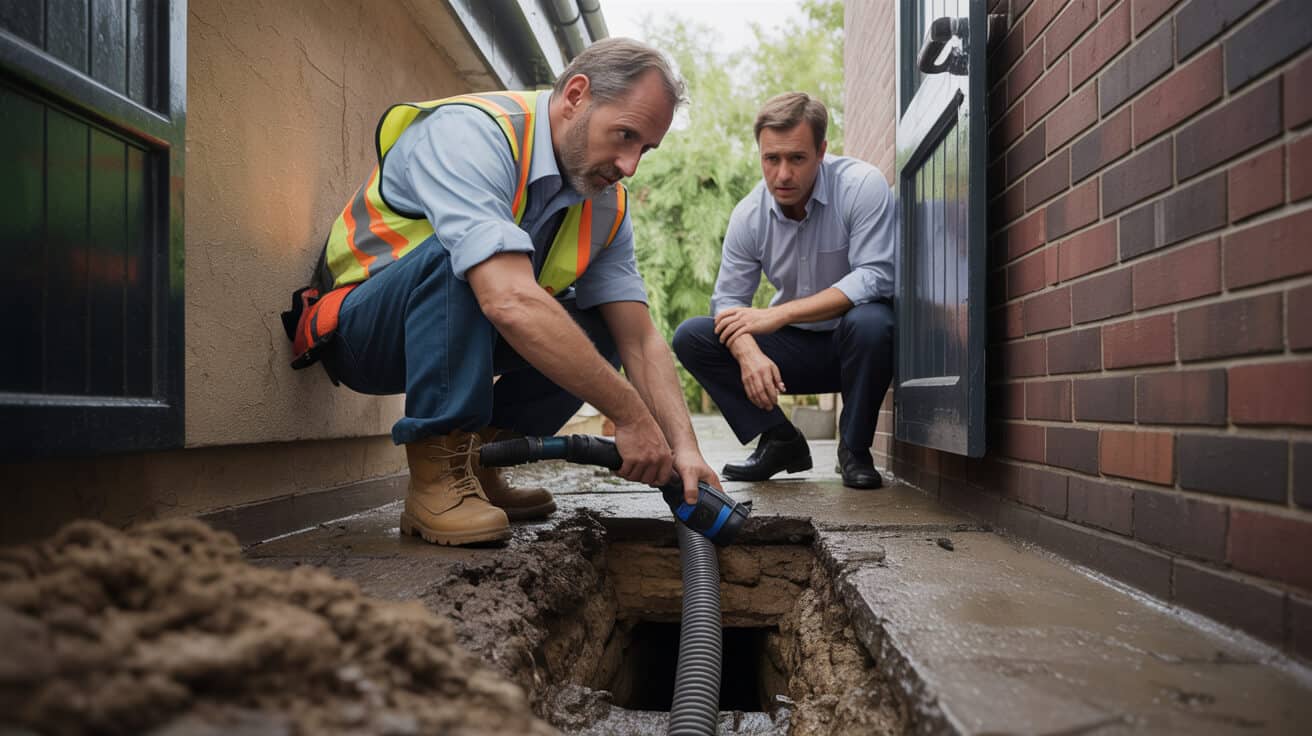
There’s no universal silver bullet—London’s water will keep coming, so you match the protection to your building, usage, and compliance needs.
1. Salt-Based Water Softeners
- Ion-exchange technology removes minerals at source: , shielding every tap, appliance, and pipe.
- Needs under-sink space and regular top-ups. Initial cost: £500–£1,200.
- Delivers the broadest, most reliable protection for multi-bath homes, rental blocks, or large properties.
2. Magnetic & Electronic Conditioners
- Clip-on devices: fit to incoming pipes; use electromagnetic fields to *alter* (not remove) lime’s ability to stick.
- Affordable, compact (from £100–£350), almost zero maintenance, ideal for tight retrofits.
- Their effect is strongest near where they’re installed—coverage may not reach every tap if your home has storage tanks or complex pipe runs.
3. Regular Descaling and Maintenance
- Every boiler, cylinder, and hot appliance *still* needs descaling.
- Only use WRAS-approved products to avoid invalidating warranties.
4. WRAS-Approved and Professionally Installed Solutions
- Ensures all work meets legal and insurance standards: —for landlords, this means fewer compliance headaches and much stronger paperwork in case of dispute or audit ([WRAS Guide](https://www.wras.co.uk/downloads/publications/Water%20Regulations%20Guide.pdf)).
There’s no universal solution—combining building-wide softeners and point-of-use protection, all with WRAS sign-off, delivers the best outcome.
Biggest mistake? Going for “quick fixes” or unregistered instals. That’s how owners lock in years of high costs, not just limescale.
How Do Softeners Stack Up Against Conditioners, and What Suits Different Property Types?
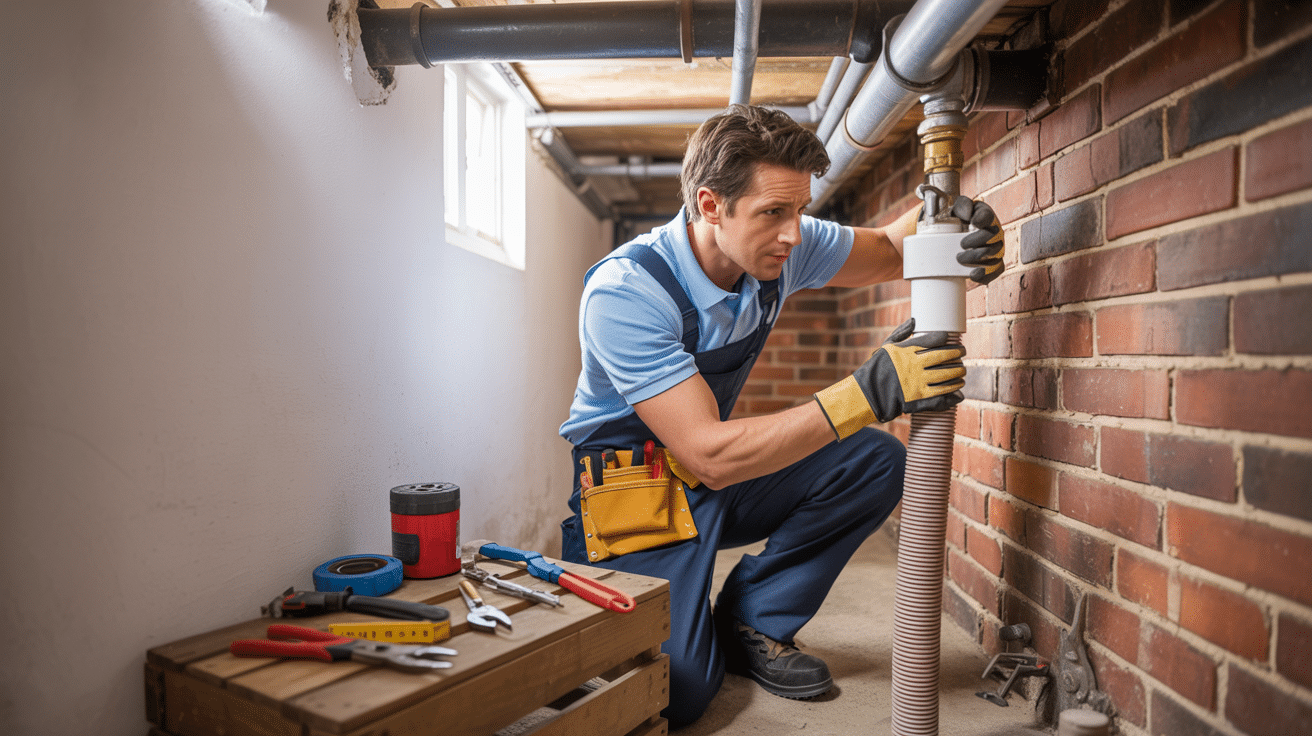
Choosing the right approach isn’t about chasing “the best device”—it’s weighing layout, use, compliance, and budget. Here’s how key solutions compare when it’s your asset or liability on the line:
| Feature | Water Softener (Salt) | Magnetic/Electronic Conditioner |
|---|---|---|
| **Initial Cost** | £500–£1,200 | £100–£350 |
| **Running Cost** | £35–£50/year (salt) | Minimal |
| **Coverage** | Whole system | Local (downstream only) |
| **Ongoing Servicing** | Annual check, salt top-up | Nearly maintenance-free |
| **Compliance/Warranty Proof** | WRAS certs, always | WRAS certs needed |
| **Protection Level** | Highest | Good/moderate |
For managed properties or anything with multiple tenants (or stricter insurance), start with a system audit from a certified engineer. In some cases, a combo is ideal: a softener for the main feed and conditioners for wings or outbuildings. If scale is already baked-in, consider a professional internal descale before installing protection (Halcyan Water).
Smart move: Don’t bargain-hunt for non-compliant units. Shortcuts nearly always equal rejected insurance claims down the road.
Why Is WRAS-Registered Installation and Surveying Non-Negotiable in London?
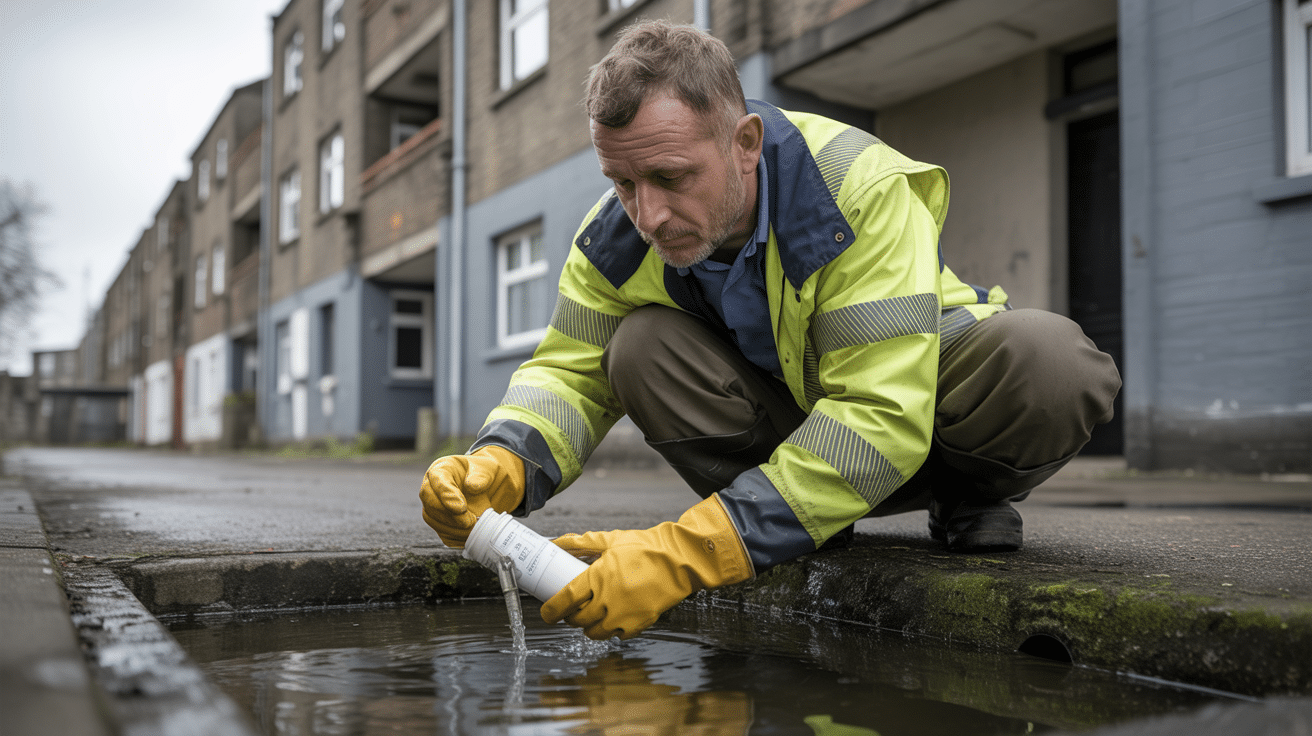
London’s not just tough on your pipes—its regulations keep getting tighter. Skipping compliance is the fastest route to headaches (and losses) later. A WRAS-registered plumber’s instal isn’t just “nice to have”—it’s what stands between you and denied claims, refusals to issue compliance sign-off, or failed rental contracts.
A certified, documented fit-out gives you:
- Tailored plan and hardness test at every key point: —skips the “seat-of-the-pants” guesswork of non-registered fits.
- Full documentation: —serial/model numbers, photos, isolation points, and valve locations for your records. *That’s gold for audits, warranty claims, or when tenants need to see action has been taken* ([WRAS Guide](https://www.wras.co.uk/downloads/publications/Water%20Regulations%20Guide.pdf)).
- Service scheduling up front: —get calendar reminders for salt top-ups, philtre changes, and system checks, with a maintenance log for every service.
- Risk reduction: —smooths your way with letting agents, tenants, buyers, or insurance assessors.
Cutting corners on compliance turns invisible protection into visible problems—fast.
Protect your investment. Buy peace of mind with a WRAS-compliant expert—spend less, worry less, move forward with confidence.
What Exactly Happens in a Plumbers 4U Limescale Survey, and Why Does It Uniformly Reduce Future Hassle?
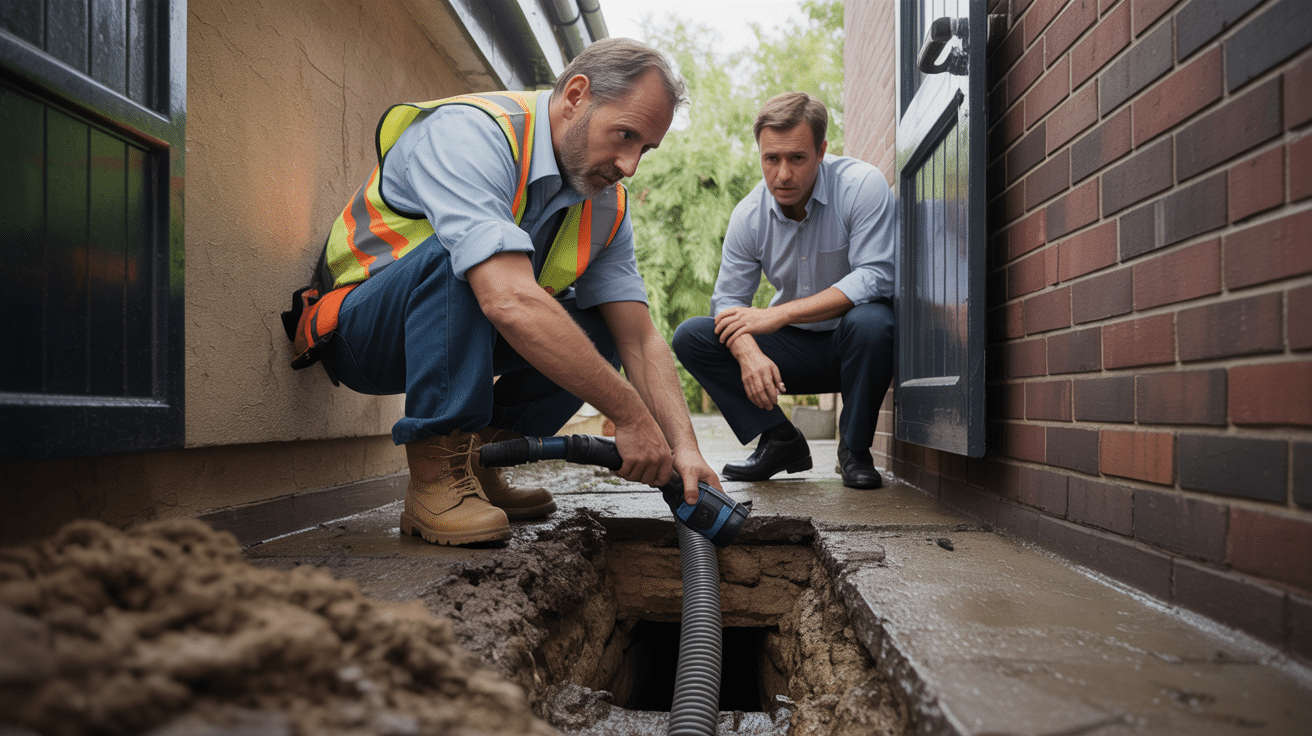
A good survey isn’t just box-ticking. Plumbers 4U treats your property like their own family home—diagnosing the true “limescale hot spots” across London’s most unpredictable supply.
Here’s what to expect:
- Total property hardness mapping: —readings at all key outlets and devices, so you know *where* you’re at risk.
- System audit: —flags old/non-compliant protections, rogue pipework or accumulators, and idles left from previous works.
- No-surprise, fixed quotes: —your price is clear up front, and includes *aftercare* (not endless “scope creep”).
- Complete WRAS/WaterSafe paperwork: —keep this for insurance, letting, sale, or warranty records ([plumbers4u.co.uk](https://plumbers4u.co.uk/)).
- Maintenance and reminder roadmap: —you aren’t left in the dark. Service schedule, user instructions, and ongoing care are part of the package.
A single survey today can cut a year’s worth of stress, callouts, and bills.
Ask any agent or property manager: staying proactive on water and limescale is a reputational win that keeps your asset safe and your phone (and inbox) way quieter.
Why Booking Limescale Protection with Plumbers 4U Lets You Sidestep London’s Hard Water Headaches for Good
“Set it and forget it” doesn’t work if you’re only half-protected. Plumbers 4U guarantee WRAS-backed instals and surveys—so you get everything you’re after: peace of mind, cost control, easier compliance, and long-term trust.
What sets a professional approach apart?
- Every property covered: owner-occupied flats, managed portfolios, HMOs, shops, or schools.
- Audit trail for insurance, landlords, and letting agents: full results and system notes, ready to share when you need them most.
- Transparent fixed pricing: no rate jumping or “mystery extras.”
- Automated reminders: for salting, philtres, and annual checks—protection that doesn’t fade once the engineer leaves.
- City-wide trust: featured on top review sites, known for results that *last* ([trustatrader.com](https://www.trustatrader.com/traders/plumbers-4-u-plumbers-haringey)).
- Compliance that stands up in court, at audit, or in a sale.:
Stop hoping your property “won’t be the unlucky one.” Shield your investment and reputation from the silent creep of limescale. Book your WRAS-grade survey with Plumbers 4U—move from uncertain to rock-solid, backed by the city’s trusted team.
The best protection is never a guess—it’s the daily certainty of a robust system, installed and cared for by pros.
Frequently Asked Questions
Who faces the greatest threats from hard water in London, and why do certain users pay a steeper price?
Hard water in London puts every property at risk, but the consequences play out differently for each type of owner, manager, or resident. Homes see more than just scale—the true impact is hidden in rising bills, premature appliance failures, and compliance headaches. If you’re responsible for a family’s comfort, safeguarding tenants, or keeping a business uninterrupted, hard water’s reach is relentless. Properties with intensive hot water use—like family homes, multi-let blocks, and commercial kitchens—are hit hardest. Here, appliance lifespans shrink, unplanned outages spike, and minor leaks often spiral into full-fledged emergencies. Landlords and letting agents in particular risk legal exposure if WRAS and Part G documentation doesn’t keep up with property churn; missed inspections or patchy repairs can render insurance or deposit protection void overnight.
Every hard water system has a tipping point—the difference between a quiet home and a major failure is often just one oversight.
It’s not just pipes: care homes, schools, and high-turnover rentals deal with sensitive clients and strict audits. Here, any lapse in hard water prevention can mean service disruption for dozens, reputational harm, and costly claims. Meanwhile, owner-occupiers who underestimate scale often face the hidden cost of reduced resale value and rising maintenance spend—issues that only surface when a boiler fails or a survey uncovers long-term neglect.
Which users see problems first, and who bears the brunt?
- Single-family homes: Notice hot water pressure drop and higher bills within a year of moving in if unprotected.
- Landlords/managing agents: Face rolling compliance, insurance, and maintenance risks as tenants rotate and legal requirements tighten.
- Commercial operators: See revenue loss from breakdowns, failed hygiene checks, or appliance underperformance.
- Vulnerable settings (schools, care homes): Experience regulatory scrutiny, with any lapse risking fines and service closures.
Those who wait for visible scale inevitably pay more—socially, legally, and financially—than those who invest in certified protection from the start.
How can you quickly diagnose hard water issues in a London property without hiring a specialist?
Most London properties suffer from hard water, but waiting for damage to surface means lost opportunity. Fast, reliable self-checks start with what you already have—your taps, soap, and a clear bottle. Fill halfway with tap water, add liquid soap, and shake. Minimal bubbles and cloudy water confirm high mineral content, a hallmark of the capital’s supply. Extend that test with an affordable home hardness strip—colour will show “hard” or “very hard” almost instantly. For a broader view, Thames Water’s postcode map makes it plain that most of London sits in the toughest category on the UK scale.
Spotting subtle early markers is crucial: faded kettle elements, slow shower drainage, or repeated descaling cycles are reliable red flags. Landlords and agents should document these checks, as evidence matters: “proof of prevention” is rapidly becoming as important as the fix itself during audits or disputes.
If you run a tap and see white spotting, hear shower pipes moan, or spend extra on soaps, you’ve already got hard water at work.
Straightforward steps to monitor and act without expert tools
- Test soap lather and water clarity monthly in key points (bathroom and kitchen).
- Log kettle, coffee machine, and showerhead descaling frequency in a property log.
- Photograph any marks or faded finishes for each new tenant or appliance installation.
- Validate your private diagnosis with a low-cost survey; certified checks add compliance value for HMOs and blocks.
An ounce of early detection protects you from a pound of future repair—proactive monitoring can also give your warranty or insurance claim ironclad legitimacy.
What are the full financial and legal consequences of ignoring limescale in London buildings?
Limescale isn’t just an aesthetic issue in London’s water—it’s a recurring, compounding expense that erodes property value and upends legal compliance. For every millimetre of scale that forms inside an appliance, energy bills rise by 10–12%. Compound that across multiple items—a typical London family can see annual costs soar by £120 or more just from inefficiency (Energy Saving Trust, 2023). Wholly unnoticed, these deposits eventually choke boilers, block valves, and force full-scale appliance replacement, with boiler failures often costing upwards of £1,000—costs rarely covered by insurance if maintenance records are lacking.
Commercial landlords face even steeper danger: a missed certificate or overdue scale treatment can mean failed inspections, rental pauses, and legal demands for tenant compensation. Importantly, London’s building codes and landlord regulations now tie rental fitness, deposit protection, and insurance liability directly to water quality and WRAS compliance.
Delaying action on scale isn’t neutral—it’s a slow leak of cash, compliance, and credibility.
Where do these losses strike first and deepest?
- Heating systems: 1mm of scale increases energy use, doubling breakdown risk over two to three years.
- Domestic appliances: Shortened life for kettles, dishwashers, and washing machines forces unplanned upgrades.
- Rental and multi-let properties: Tenant disputes over water pressure or bill spikes can trigger compensation or regulatory complaints.
- Insurance coverage: Policies may exclude claims if routine WRAS treatment and recorded maintenance can’t be demonstrated.
The bottom line: preventive investment in limescale control always undercuts the ballooning cost of ignore-and-repair cycles—especially for those with legal accountability to tenants or business partners.
Which hard water treatments deliver real protection for London homes and buildings, and how does certification tip the balance?
London’s geography and regulations create a one-two punch: extreme mineral content plus legal responsibilities that demand more than off-the-shelf fixes. The most effective solution is a property-wide, salt-based softener, WRAS-approved, installed directly after the mains and calibrated for the occupants’ needs. This halts scale before it forms, extends all appliance lifespans, and delivers measurable savings on energy bills over time. However, not every property can support such a system—space, plumbing access, or tenancy constraints often require alternatives.
Magnetic and electronic conditioners suit apartments or retrofits—altering the deposition behaviour of minerals, easing maintenance on taps and showers, and requiring little more than a double-check on the electrical supply. For specific appliances under heavy use (boilers, washing machines, catering kit), point-of-use philtres (polyphosphate, catalytic) are a cost-effective tactical defence, but lack the whole-building security of true softeners.
Certification is not box-ticking: only approved installations from WRAS or WaterSafe-registered pros protect warranties, qualify for insurance claims, and pass regulatory audits.
| System | Primary Benefit | Upkeep | Certification Needed |
|---|---|---|---|
| Salt softener | System-wide protection | Salt bulk, annual service | WRAS, WaterSafe |
| Magnetic/electronic | Minimal disruption/retrofit | None/minimal | WRAS recommended |
| POE philtre | Spot defence, easy swap | Cartridge swap | WRAS |
Why should certification matter to landlords, agents, and commercial facilities?
- Uncertified kits can void warranties and trigger claim denial even if the fault isn’t visible up front.
- A certified instal creates a compliance record—essential for agents and owners with properties under review.
- WRAS documentation builds value and market appeal for buildings, while shortcut instals can depress valuation.
Don’t just treat the surface—if you want results defensible in court, under audit, or when selling, hire a pro who knows both the technical and compliance dimensions.
How can landlords and managing agents bulletproof compliance and avoid disputes in hard water zones?
Staying compliant with London’s tough water regs isn’t a paper-shuffling exercise—it’s insurance against costly service interruptions, legal challenge, or deposit disputes. London’s landlords and managing agents are responsible for delivering continuous safe hot water, with up-to-date evidence of WRAS compliance and proactive maintenance. The Homes (fitness for human habitation) Act and Part G mean even a minor oversight—a lost service log or skipped scale treatment—can pause tenancies or block claims.
Sensible stewards routinely commission WRAS-accredited surveys prior to each new rental or major installation, file digital and paper records of treatments, and educate tenants on the signs and reporting of hard water problems. Letting agents in particular should decline “off-book” treatments that lack regulatory stamp; paperwork is demanded not just on instal day, but in every future audit or tenant dispute.
You don’t get a second shot if an inspector finds a missing certificate or a tenant loses heating—documentation and professional checks are your only shield.
What’s the operational playbook for undebatable compliance?
- Commission certified surveys and instals; always.
- Maintain a log of salt purchases, descaler use, and service calls, even when no issue is found.
- Train tenants to spot early warning signs and know who to contact for rapid reporting.
- Keep copies of all compliance, insurance, and warranty paperwork in two locations (digital and paper).
- Schedule service reminders before tenancy or warranty renewals; late paperwork can nullify entire contracts.
With Plumbers 4U, not only do you get the accredited survey, instal, and maintenance schedule, but you also have proactive support to close every compliance gap before a tenant, inspector, or insurer ever points it out.
Which plumbing assets break down first from London’s hard water—and how does expert service protect your investment?
London’s hardest water reserves its biggest punishment for your home’s and business’s most expensive assets: boilers, cylinders (especially unvented), high-traffic dishwashers, washing machines, and shower systems. Within months of exposure, scale coats heating elements, sticks valves, and chokes pipe diameters—minor fixes morph into recurring breakdowns, emergency callouts, and mounting replacement costs. The visible cues—a furred tap, slow shower, or faded finish—signal much deeper internal damage, often undetectable in a visual inspection alone.
Homeowners who try to “clean their way out” discover the hard limit of surface fixes; managers learn that neglecting expert intervention eventually voids much more than warranties—it can mean days or weeks offline, lost tenants, and compliance flags. Only specialist-led, WRAS-certified interventions audit every circuit and prescribe the right scale solution matched to property age, flow rate, and actual user demand.
Reliability isn’t luck; it’s the outcome of seeing risks before they show, then acting to protect your asset—every time.
What does a certified service—from initial assessment to ongoing support—change?
- Identifies every risk point, in hidden as well as visible areas, before failure occurs.
- Matches softeners, conditioners, or philtres to your unique property and pressure regime.
- Delivers the regulatory gold standard in documentation—insurance, warranties, tenancy, and compliance all covered.
- Automates maintenance and compliance reminders, so you’re shielded against paperwork expiry or tenant complaints.
Scheduling a comprehensive survey and instal with Plumbers 4U means more than just a fix; it means you take charge of your property’s uptime, compliance, and total value for years to come.
